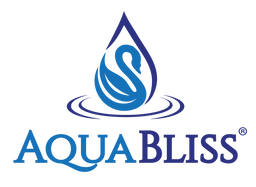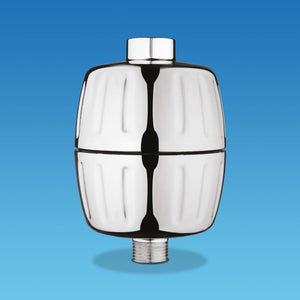Nations, states, and businesses discuss ways to conserve water on a continual basis, acknowledging the pressing concern of water scarcity and the question of "will we ever run out of water."
There have been many warnings from science and the media suggesting that we may run out of H2O, raising concerns about "can Earth run out of water," in the near future.
It's expected that two-thirds of the world's population will face water shortages by 2025. The thought that people across the globe will eventually go thirsty is frightening, especially since this is a real possibility.
After all, the population on Earth is continuously increasing, therefore requiring more fresh drinking water every day; global heating is also reducing the amount that is available to us. What if demand goes unchecked or increases? Will water ever run out?
When Will We Run Out Of Water?
Finding ways to conserve water is important even if the Earth is in no danger of running dry in the foreseeable future, addressing the question of "when will humans run out of water" that might come to mind.
The Earth itself will not run out of water as it contains enormous quantities of H2O within its oceans, lakes, rivers, atmosphere, and even in the rocks of the inner Earth! Three-quarters of the globe is made up of our oceans.
We also have mountain glaciers, polar ice caps, rocks that hold H2O in Earth's inner layers, lakes, and rivers. So, there is an abundance of H2O and the Earth will not, in a literal sense, run out of water.
However, will water ever run out on a scale that could impact human societies and ecosystems? That remains a critical question that prompts the need for sustainable water management practices.
If This is True, Why are There Water Shortages?

It's true that the Earth has various bodies of water; however, you can't just fill up a bottle from the ocean and drink it. For this reason, millions of people lack clean, fresh water, raising concerns about "can Earth run out of water."
These areas can benefit the most from discovering new and more efficient ways to conserve water.
Many areas of the world are facing shortages because accessible drinking water is difficult to transport, not to mention that it is unevenly distributed across the globe.
Why? Because some areas don't have the infrastructure to have constant freshwater supplies. Since hydration is crucial for our health, shortages here may affect survival.
It's also a worry that the world's human population is around 8 billion and continues to grow.
Water isn't only used for consumption but also for the following:
- Washing
- Cooking
- Electricity
- Agriculture
- Industrial purposes
- And so much more!
Water consumption, along with droughts, means that shortages are becoming more common across the Earth. Finding the best ways to conserve water and foster water conservation could prevent anyone from ever asking, “When will we run out of water?”
How the Cycle Works — Freshwater to Drinking Water
The Earth's water goes through a cyclical process over millions of years, where it is recycled between different parts of the planet.
This water is from the inner Earth, the oceans and rivers, and the globe's atmosphere. This means that the amount of H2O on Earth is always being regulated by the planet itself.
The thing is, the water that humans need to survive is different from natural freshwater — we need ‘sustainably managed' water. Since water is a finite resource, we should find and practice every way we possibly can to conserve water.
Freshwater Has to Undergo Multiple Physical Processes…
… in order to meet government standards for human use.
The processes include:
- Filtration — Helps separate solids from fluids, ensuring only liquids go through the filter. This filtration process is incredibly important as it helps reduce the concentration of viruses, parasites, algae, bacteria, and fungi in our H2O.
- Distillation — Separates components of liquids through a boiling and cooling process.
- Sedimentation — Allows sediment to settle through a clarifier, which is often used to assist with the process.
Chemical processes such as chlorination and flocculation are also involved. Electromagnetic radiation, such as UV light, is also used as part of the purification process.
All of these methods are costly and complex. Purified water can be re-contaminated easily. Finding a sustainable water purification plan for any area depends on finding the best ways to conserve water that has been treated.
What is Water Being Used For?

Alongside overpopulation, one of the problems with water shortages is that water is not just for drinking and food production anymore. The increasing manufacture of material goods in first and second-world countries is not helping the issue.
You might ask ‘When will we run out of water for manufacturing?”
Here's an indication of how much H2O is used to make common items:
- 100 liters = 1lb plastic
- 2,500 liters = a cotton t-shirt
- 10,000 liters = a single pair of jeans
- 14,502 liters = one smartphone
- 146,631 liters = 1 automobile
These factors make the manufacturing sector keenly aware of the water bill. Many companies employ experts to help them lower costs and find the best ways to conserve water.
Some of our much-loved food items can be some of the most water-intensive of all. Bear in mind that around 70% of our freshwater on the planet is used for agriculture.
- Chocolate uses around 17,000 liters to produce just 1 kilogram
- 1lb of beef requires just over 8,100 liters
- 1lb of cheese uses 2,727 liters
The beverage industry also uses a vast amount, as you would imagine. Human thirst may be the primary factor in figuring out when the Earth will run out of water.
Since we discovered the luxury of novelty drinks, their presence has continued to increase in our supermarkets. It takes 75 liters to make a pint of beer and 140 liters of water to produce one cup of coffee.
What Are the Solutions?
It can be a bit scary taking in all this information. Thankfully, there are many ways to conserve water.
Improving Resource Management
Some countries manage water poorly, but some simple techniques to rectify this can be very effective.
Take plugging pipes. Aging and poorly maintained pipe infrastructure can lead to leaks, which can waste 300 liters of water each year.
Limited water supplies can also be better managed if workers such as farmers are given clearer targets for waste reduction.
Also, better information and more funding for water-efficient technologies can help businesses find more ways to conserve water.
Monitoring The Cycle
A focus on water conservation technologies here is key. Industries need to pay more attention to and look after the water cycle. If they prevent polluting the water, it can then be returned to the cycle.
Contraptions such as cisterns can help capture rain, which can then be utilized.
Water needs to be saved for necessities and prioritized accordingly. Using it for luxuries such as watering golf courses and bottled water needs to be reviewed.
Reducing Industry Water Consumption
A big way to conserve water is to work with major industries. They use around 22% of the world's water. This is higher in countries with higher GDP compared to those with a lower GDP.
This includes direct and indirect usage and implementing sustainable practices. It's also important to hold corporations accountable.
Develop Better Regulations
To assist with all the above and more, governments need to improve effective regulations.
This could involve:
- Stopping people from inappropriately disposing of waste
- Allowing for better infrastructure
- Pricing water in a way that will be beneficial to all
Education
Education is the ultimate solution for finding new and better ways to conserve water. It's the same with the climate crisis; the population must be educated on how to change their lifestyles to help reduce the impact of these threats.
When will we run out of water? We must be fully aware of what lies ahead. Consuming less is a seemingly simple yet hugely effective approach.
It's not just individuals, either, but corporations and supply chains need to be equipped with the right information to ensure they act sustainably.
When Will Earth Run Out Of Water?

The world will never ‘run out’ of H2O. A better question is, "Will the Earth ever run out of water?" or “When will we run out of drinkable water?” The answer, for now, seems to be “not for a long time.”
That doesn’t mean we should waste this precious resource.
Conclusion
After reading this article, you should hopefully be more clued-up on the importance of finding the best ways to conserve water.
AquaBliss is about ‘all things water’, and they provide state-of-the-art water filtration for your kitchen and the shower. Aquabliss products can filter your water and add beneficial minerals that help combat the negative effects of hard water.
Your skin will feel smoother, and your hair will feel softer after taking a shower with one of their easy-to-install and revolutionary shower filters. Contact a representative today to find out what AquaBliss can do for you!







